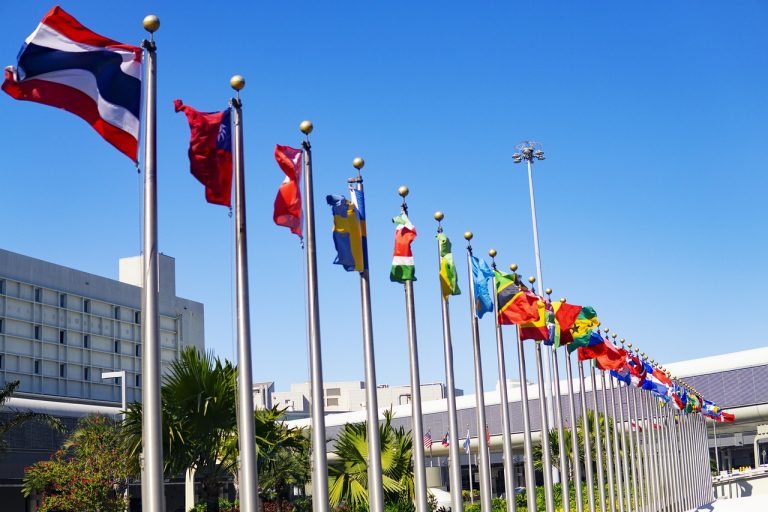Pakistan’s geopolitical significance has made it a vital player on the global stage. Its location, bordering major regions like South Asia, Central Asia, and the Middle East, combined with its involvement in key international initiatives, highlights why the world cannot overlook its role in global politics. But what makes Pakistan so crucial, and how does it navigate its relationships with global powers while addressing domestic challenges?
Geopolitical Importance of Pakistan
Strategic Location
Pakistan’s location has always been its greatest asset. Situated at the crossroads of South Asia, Central Asia, and the Middle East, it serves as a gateway for regional trade and energy corridors. Its proximity to major global powers like China, India, and Russia makes it a key player in regional dynamics. Moreover, access to the Arabian Sea provides it with strategic leverage in maritime politics.
Economic Corridor Significance
The China-Pakistan Economic Corridor (CPEC), a flagship project of China’s Belt and Road Initiative (BRI), has put Pakistan in the spotlight. By connecting western China to the Arabian Sea, CPEC offers economic opportunities not just for Pakistan but also for neighboring regions. It has reinforced Pakistan’s role as a critical hub for trade and connectivity.
For a complete overview, click this link.
Pakistan’s Relationship with Global Powers
Pakistan-China Relations
China is Pakistan’s closest ally, with a relationship spanning decades. The partnership encompasses economic, military, and strategic domains. Projects like CPEC signify their mutual interest in regional stability and economic development. Both countries also collaborate on defense, sharing interests in countering regional threats.
Pakistan-USA Relations
Pakistan’s relationship with the United States has been dynamic, marked by periods of collaboration and tension. Historically, the two countries worked closely during the Cold War and the War on Terror. However, recent years have seen challenges in aligning their priorities, particularly regarding counterterrorism and regional stability.
Pakistan-Russia Relations
In recent years, Pakistan has explored closer ties with Russia. Shared interests in energy and defense have paved the way for collaboration. Joint military exercises and energy agreements indicate a growing partnership between the two nations.
Pakistan in Regional Politics
Relations with India
The longstanding conflict over Kashmir continues to dominate Pakistan’s relations with India. While efforts have been made to resume dialogue, mutual distrust has hindered progress. The unresolved tensions have a profound impact on South Asian stability.
Afghanistan and the Taliban
Pakistan has played a significant role in Afghanistan, particularly in facilitating peace talks with the Taliban. Its influence in shaping Afghan politics remains crucial, although it faces challenges in managing cross-border security concerns.
Role in the Muslim World
Pakistan has been an advocate for Muslim causes globally, using platforms like the Organization of Islamic Cooperation (OIC). It has consistently voiced support for Palestine, Kashmir, and other Muslim-majority regions facing conflicts.
Economic Challenges and Opportunities
Trade and Connectivity
Efforts to boost trade with neighboring countries have positioned Pakistan as a regional hub. Initiatives like CPEC aim to enhance connectivity and attract foreign investment, unlocking new economic opportunities.
Foreign Aid and Economic Dependencies
Pakistan’s reliance on foreign aid has been a double-edged sword. While it provides much-needed financial support, it also limits economic independence. The government is now focusing on policies to achieve self-reliance and sustainable growth.
Pakistan’s Role in Global Peacekeeping
Contributions to UN Missions
Pakistan is one of the largest contributors to United Nations peacekeeping forces. Its personnel have served in conflict zones worldwide, earning recognition for their professionalism and commitment.
Mediating Conflicts
Pakistan has often acted as a mediator in regional disputes. Its efforts to facilitate dialogue in Afghanistan and its support for peace processes reflect its commitment to regional stability.
Challenges to Pakistan’s Global Role
Internal Political Instability
Frequent political upheavals impact Pakistan’s ability to project a consistent foreign policy. Stable governance is essential for improving its diplomatic standing.
Security Concerns
Pakistan’s counterterrorism efforts have been commendable, but challenges remain. The perception of security issues often overshadows its achievements in global forums.
Economic Instability
Economic challenges, including inflation and debt, hinder Pakistan’s ability to exert greater influence internationally. Addressing these issues is crucial for enhancing its global role.
Conclusion
Pakistan role in global politics is evolving, shaped by its strategic location, economic initiatives, and relationships with global powers. While challenges like political instability and economic dependency persist, Pakistan’s contributions to peacekeeping, trade, and regional stability highlight its potential to play a more significant role on the global stage. By addressing internal challenges and leveraging its strengths, Pakistan can strengthen its position as a key player in global affairs.
FAQs
- What makes Pakistan geopolitically important?
Pakistan’s location at the crossroads of South Asia, Central Asia, and the Middle East gives it strategic significance, making it a gateway for trade and regional connectivity. - How has CPEC impacted Pakistan’s global standing?
CPEC has transformed Pakistan into a critical hub for trade and energy, boosting its economic significance on the global stage. - What challenges does Pakistan face in global politics?
Political instability, economic challenges, and security concerns are some of the key obstacles impacting Pakistan’s global influence. - What is Pakistan’s role in the Muslim world?
Pakistan advocates for Muslim causes globally and plays an active role in platforms like the OIC, supporting issues like Palestine and Kashmir. - How does Pakistan contribute to global peacekeeping?
Pakistan is one of the largest contributors to UN peacekeeping missions, with its personnel serving in various conflict zones worldwide.


